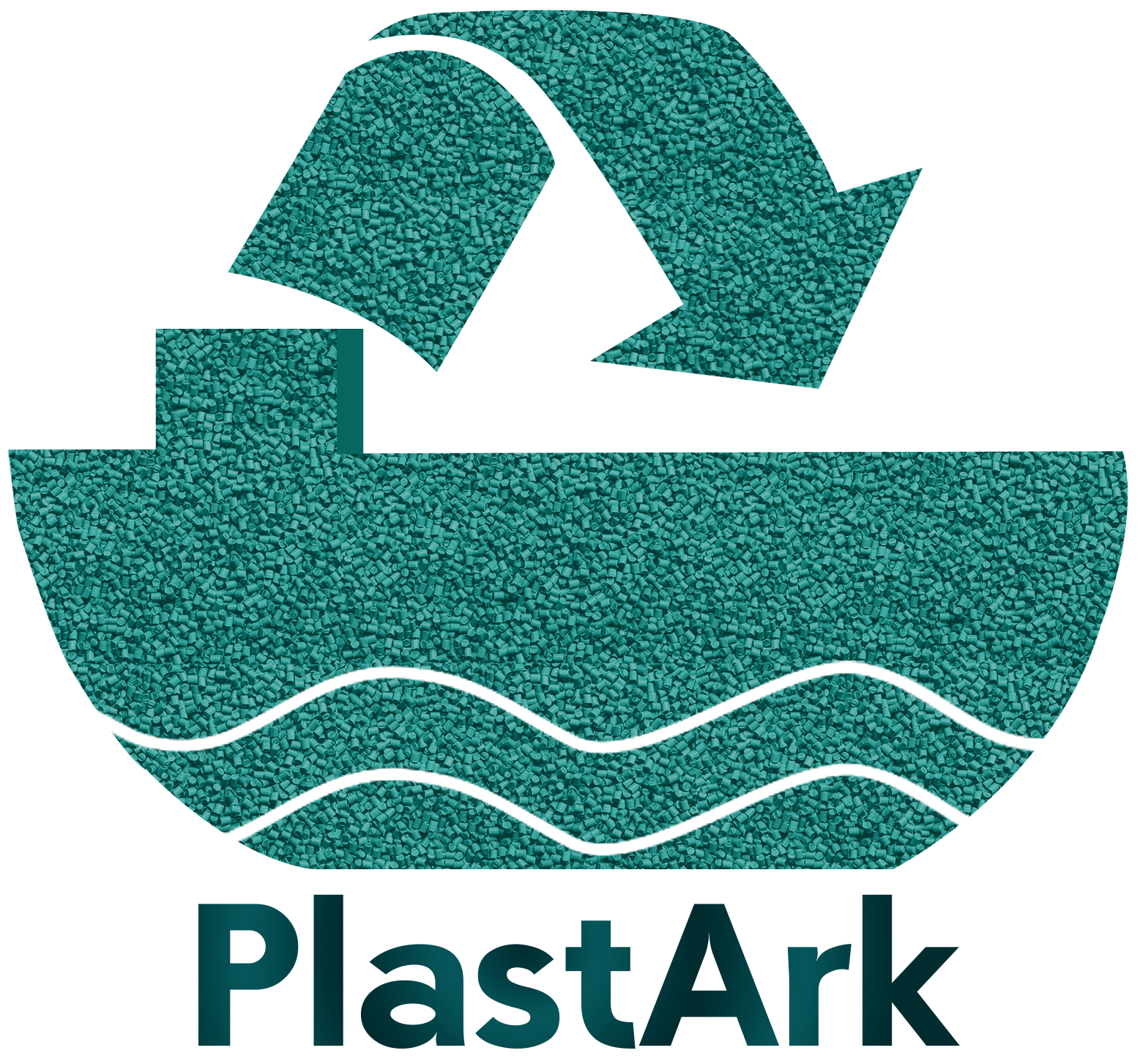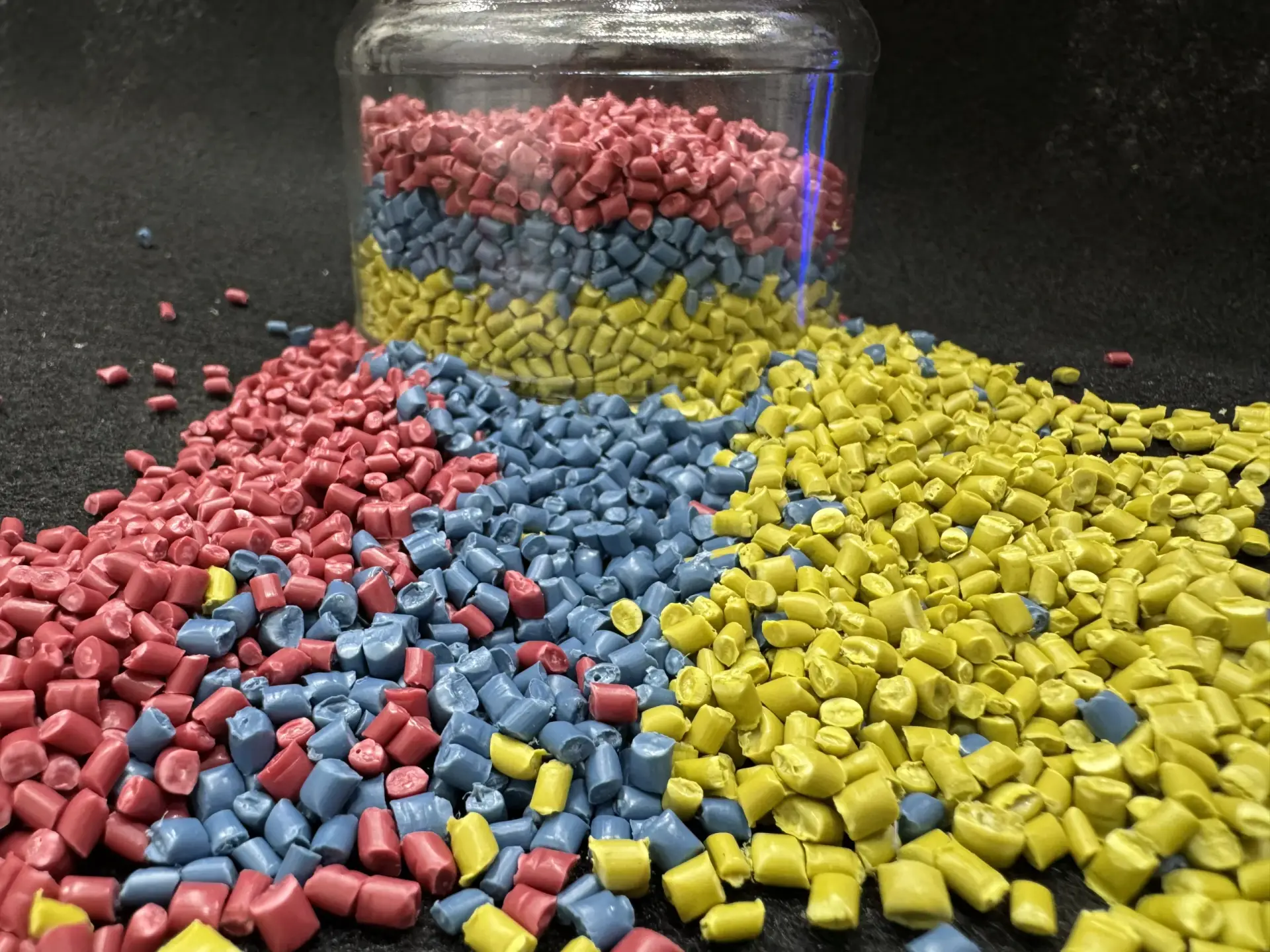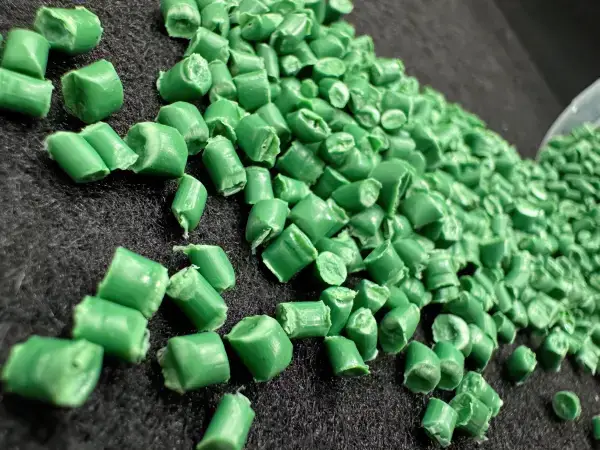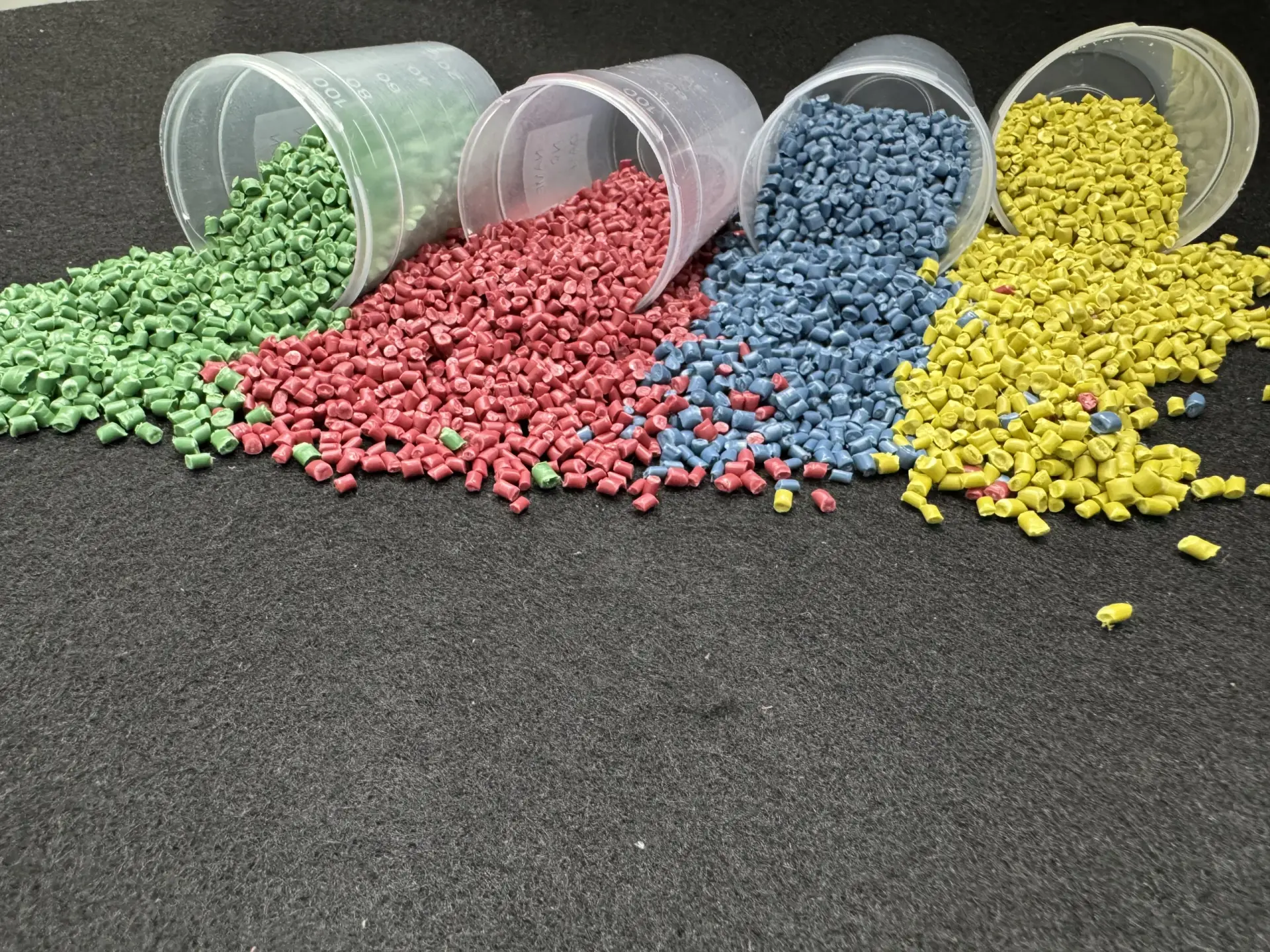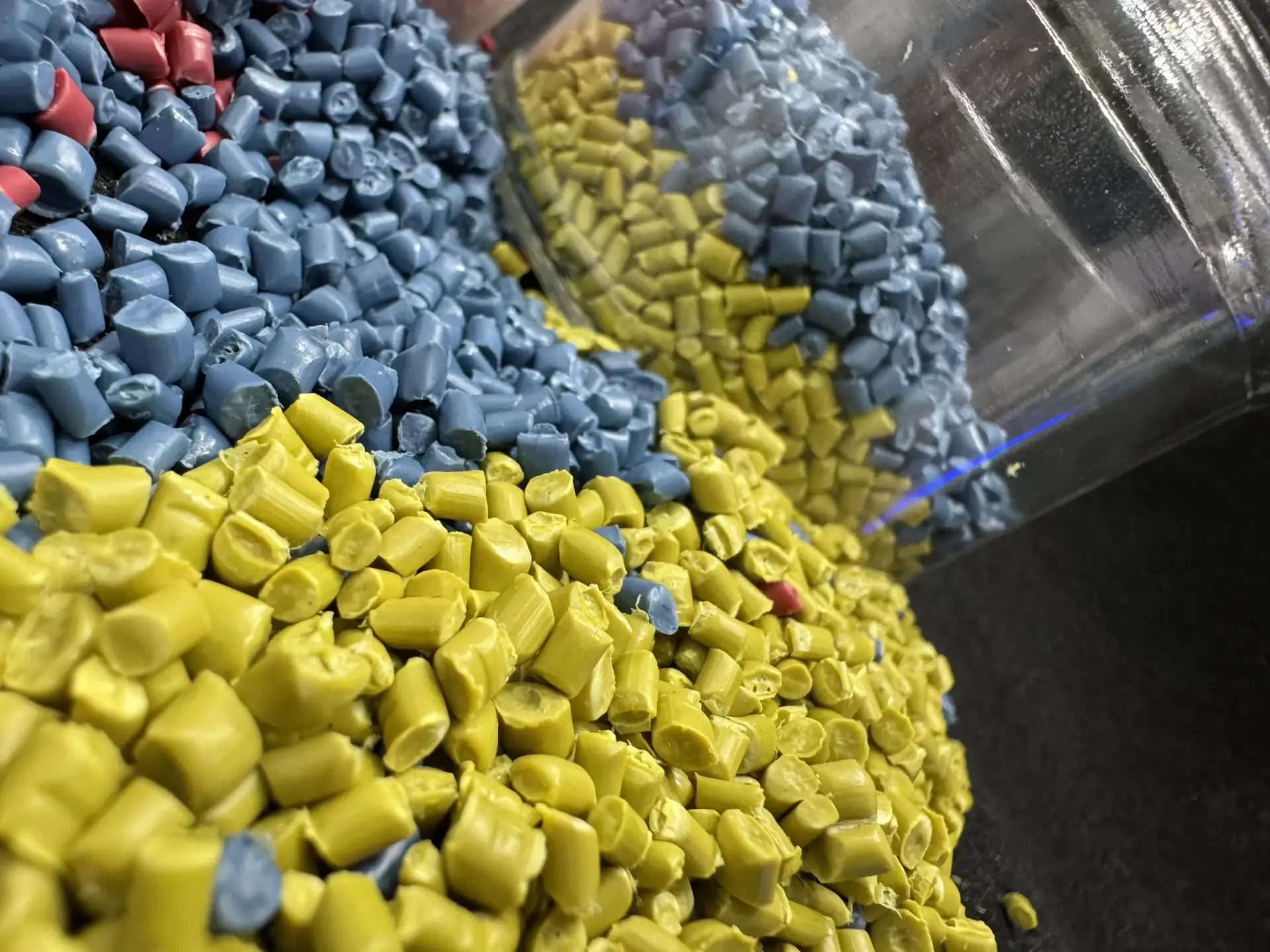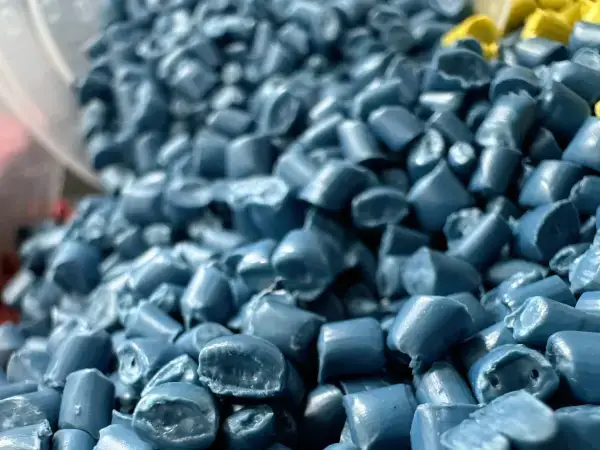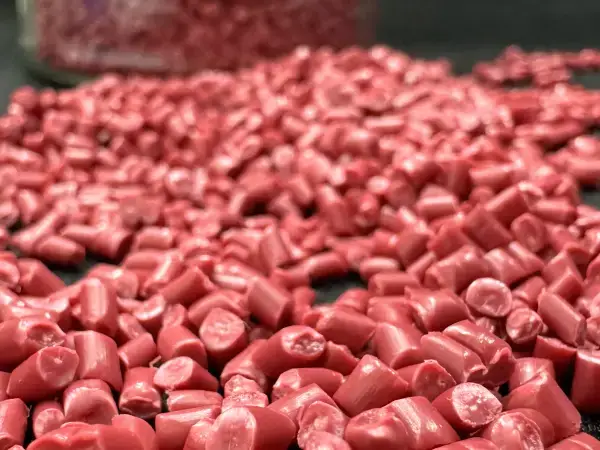Recycled Polypropylene (P.P)
- Extrusion Grades: Ideal for sheets and profiles.
- Blow Molding Grades: Perfect for hollow products like bottles and containers.
- Injection Molding Grades: Suited for precision parts and durable products.
INTRODUCTION
Have you ever wondered what happens to the plastic we use daily? Amid the alarming rise in plastic waste, recycling emerges as an innovative solution that gives new life to used materials. Polypropylene (PP) is one of the most important types of recyclable plastics, playing a significant role in reducing waste and protecting the environment.
What is recycled polypropylene?
Polypropylene (PP) is a thermoplastic material that belongs to the polymer family. It is characterized by its light weight, high resistance to heat, and ability to resist chemicals. When recycled, polypropylene retains most of its fundamental properties, making it an excellent choice for reuse in many industrial and consumer applications.
The relationship between recycling polypropylene and the environment
Traditional plastic poses a significant environmental challenge, as it takes hundreds of years to decompose and leads to soil and ocean pollution. This is where recycled polypropylene plays a role:
- Reducing waste: Recycling plastic reduces the amount of waste that ends up in landfills or pollutes nature.
- Lowering carbon emissions: Recycling one kilogram of polypropylene reduces greenhouse gas emissions compared to producing it from raw materials.
- Conserving natural resources: It reduces reliance on oil and other raw materials, preserving resources for future generations.
“When we recycle plastic, we not only save the environment but also create a sustainable future for everyone.”
Scientific properties of recycled polypropylene
- Flexibility and durability: Recycled polypropylene retains its flexibility, making it suitable for applications that require impact resistance.
- Thermal stability: Recycled polypropylene can withstand high temperatures up to 130°C, making it ideal for products exposed to heat.
- Chemical resistance: It has excellent resistance to many chemicals, such as acids and alkalis, making it suitable for industrial packaging.
- Lightweight: It has a low density compared to other materials, which helps reduce transportation costs and makes it easier to handle.
- Recyclability: Polypropylene can be recycled multiple times without significant loss of its properties.
“Recycled polypropylene is an ideal blend of sustainability and quality, making it a versatile and scalable material.”
The process of recycling polypropylene
The recycling process of polypropylene begins with the collection of used products such as bottles, containers, and packaging materials. These are cleaned and sorted carefully to ensure the removal of any impurities. The materials are then cut into small pieces, washed, and melted to be reshaped into pellets or plastic flakes. The resulting materials are then ready to be used in manufacturing new products with improved quality.
The journey of polypropylene recycling involves several precise steps to ensure the quality of the final product:
- Plastic collection: Polypropylene waste is gathered from various sources, including homes and industries.
- Cleaning: Contaminants and impurities are removed to ensure the raw material’s purity.
- Cutting: The plastic is cut into small pieces to facilitate processing.
- Melting and reshaping: The plastic pieces are melted and converted into new products like pellets or moldable materials.
“Every step is executed with care to ensure that the final product achieves the highest levels of quality and sustainability.”
Uses of recycled polypropylene (PP)
Home industries: Storage boxes, plastic utensils, lightweight furniture.
Packaging: Industrial bags, non-food containers.
Agriculture: Irrigation pipes, plant pots, nets.
Automotive: Interior panels, bumpers.
Toys: Children’s toys and recreational equipment.
Electronics: Wire coverings and small components.
Construction: Insulation materials and plastic panels.
CONCLUSION
When you choose products made from recycled polypropylene, you contribute to reducing plastic waste, protecting the environment, and supporting the circular economy. Together, we can turn waste into value and build a cleaner, more sustainable future.
“At PlastArk, we believe that sustainability is not an option, but a responsibility we share together.”
